Elections set to preserve political status quo

Elections have been taking place in Switzerland to choose the members of the two chambers of parliament for the next four years.
The outcome will have a major impact on the makeup of the multi-party government. The new parliament will have to confirm the cabinet, and choose a successor to Foreign Minister Micheline Calmy-Rey, who is stepping down.
First nationwide trends of the parliamentary elections are expected on Sunday evening, with final results due early Monday. Run-off ballots may be necessary in some cantons for Senate seats.
Latest opinion polls see further fragmentation of the political centre-right. The Liberal Green Party and the Conservative Democrats could make most gains, while the Radicals – the founding fathers of modern-day Switzerland – could suffer the biggest losses.
The other main parties are likely to remain stable according to a survey by the leading gfs.bern research and polling institute carried about two weeks before election day.
In 2007, the rightwing Swiss People’s Party came top with nearly 29 per cent of the vote for the House of Representatives, more than nine per cent ahead of the centre-left Social Democrats.
The two traditional centre parties, the Radicals with 17.7 per cent and the Christian Democrats with 14.5 per cent were followed by the Greens with just under ten per cent.
Turnout
No single party holds a majority in either of the two parliamentary chambers. While the People’s Party is the biggest group in the House, the Christian Democrats and Radicals dominate the Senate.
Turnout is expected to be just below 50 per cent, similar to the 2007 elections. Most voters use the postal system and no longer head to the polling booths.
This year’s election campaign is considered rather low-key with no single policy issue or personality at the centre.
Although the People’s Party made a strong showing with posters for its anti-immigration drive, the campaign was marked by a succession of issues undercutting their efforts.

More
House of Representatives
Low-key campaign
While the nuclear disaster at the Fukushima power plant in Japan drew public attention in spring, later phases were marked by economic concerns over the strong Swiss franc and speculation over the future cabinet makeup.
Political scientist Silvano Moeckli of St Gallen University noted the low intensity in political conflicts compared with the campaign four years ago.
In addition the three other main parties appeared to have clear strategies to face the challenge of the powerful People’s Party, according to Michael Hermann of Zurich University.
Controversial funding
A recurring issue this year as in previous elections was the lack of transparency over party and campaign funding.
There are no official figures but estimates show that the financial spending of the People’s Party dwarves expenditure of rival parties.
The People’s Party spent up to SFr7.1 ($7.9 million) on advertising in the media and for billboards between May and September, according to a market research institute.
The Radical Party invested SFr4.5 million and the Christian Democrats almost SFr3 million over the same period.
The Social Democrats and the Greens trailed behind with SFr1.6 million and SFr388,000 respectively.
Other research appeared to confirm the financial clout of rightwing and centre-right parties, but they have rejected repeated calls by the centre-left to publish detailed figures.
Critics point out that money is not necessarily the decisive factor in ballots as shown in votes on specific policy issues.
The lack of transparency over campaign financing has been criticised by the Organisation for Security and Cooperation which is monitoring the ballot. Switzerland is one of the few countries in Europe without rules on the issue.

More
Government, ministers, president
A record 3,458 candidates competed for the 200 seats in the House of Representatives and 44 of 46 Senate seats.
About 5.1 million citizens, including more than 700,000 Swiss expatriates, were eligible to vote.
Citizens in four of 26 cantons, including a limited number of registered Swiss expats, could cast their ballot online in ongoing trials with e-voting.
Turnout was expected to be around 49%. Most votes are cast by post.
Elections take place every four years in the second half of October.
The new parliament will choose the seven-member cabinet on December 14.
A total of 12 parties currently sit in parliament, five of which are represented in the cabinet.
The rightwing Swiss People’s Party is the biggest group in the House of Representatives.
The centre-left Social Democrats are the second-biggest group.
The centre-right Radicals and the Christian Democrats dominate the Senate.
The Greens are the biggest non-governmental party.
The Liberal Greens and the Conservative Democrats – who split off from the People’s Party in 2008 – are two relatively new groups at the political centre.
(With input from Armando Mombelli)

In compliance with the JTI standards
More: SWI swissinfo.ch certified by the Journalism Trust Initiative

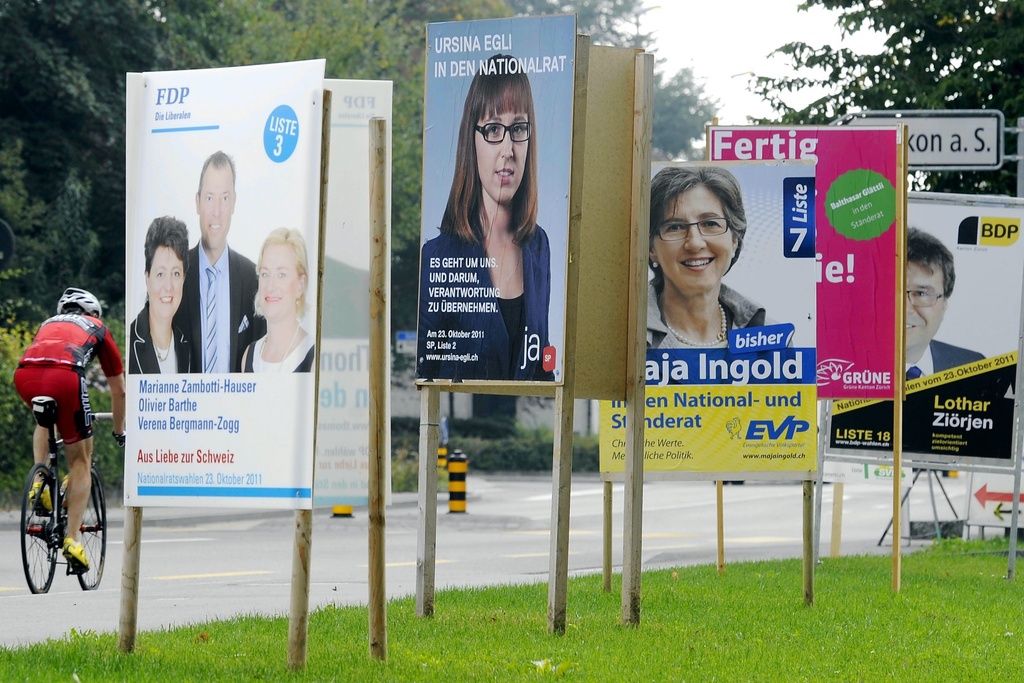
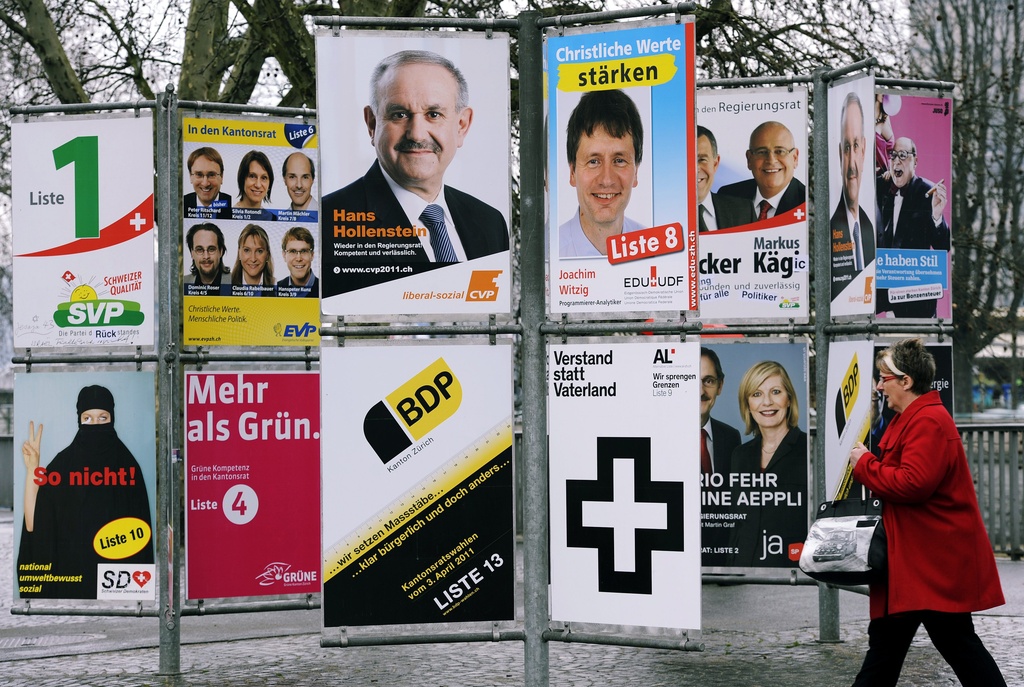
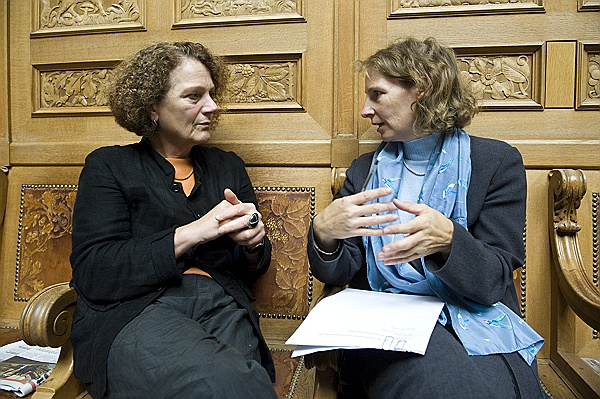
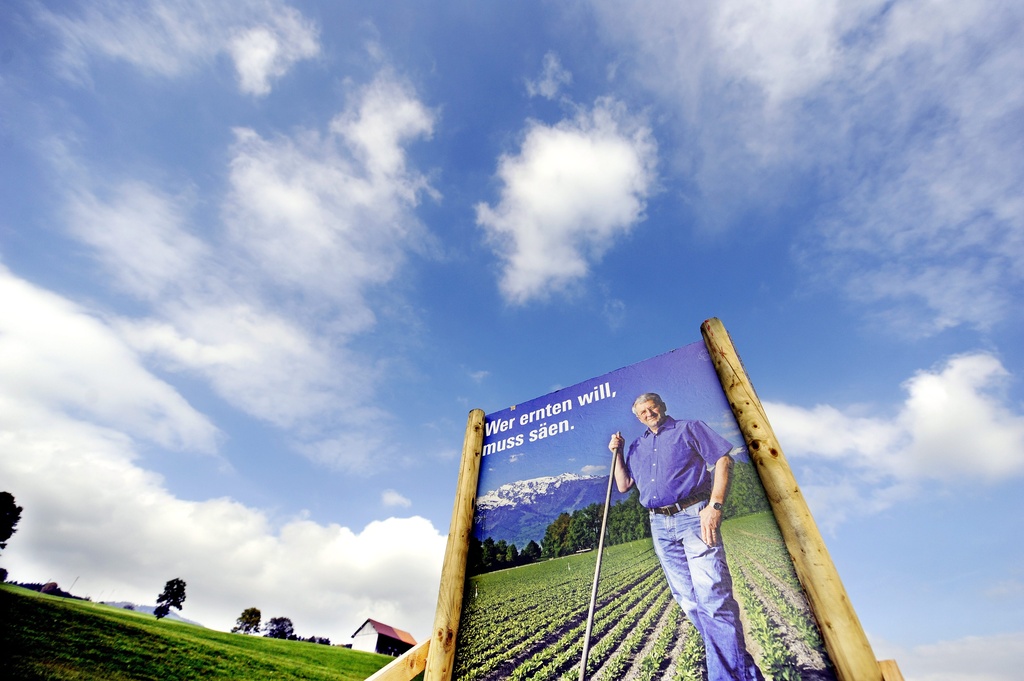
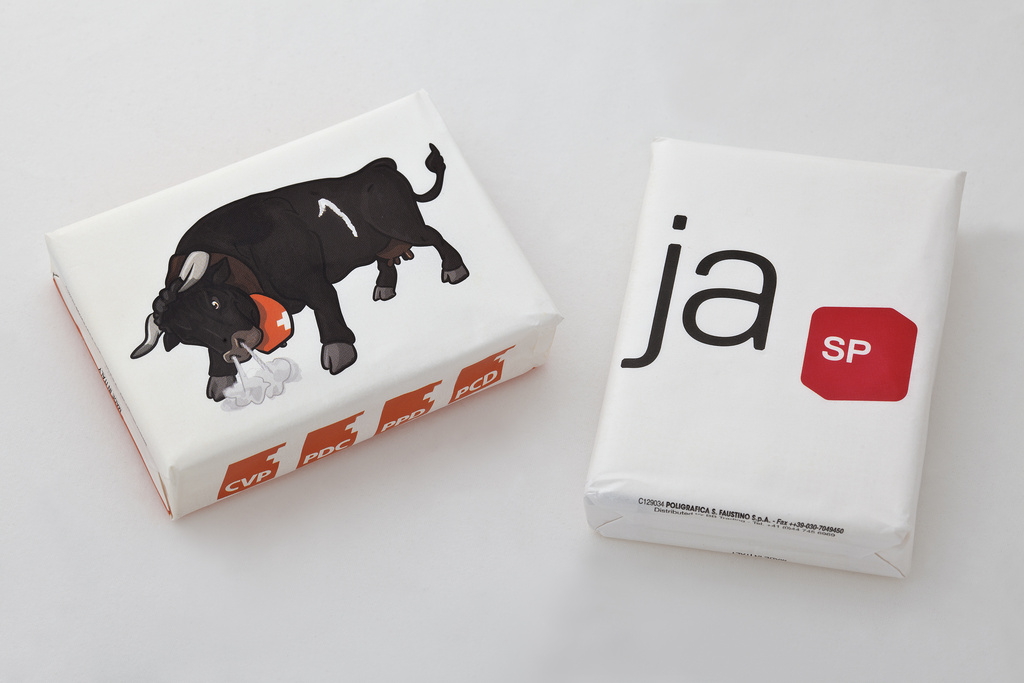
You can find an overview of ongoing debates with our journalists here. Please join us!
If you want to start a conversation about a topic raised in this article or want to report factual errors, email us at english@swissinfo.ch.